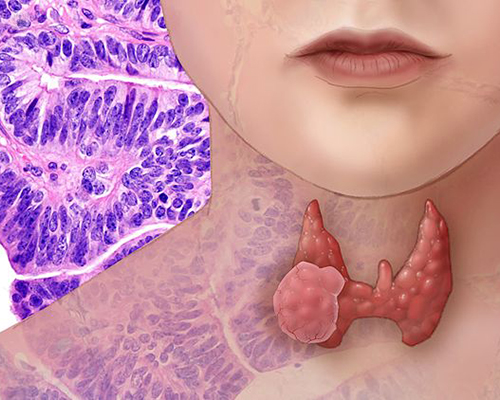

What are thyroid disorders?

The thyroid is an essential gland in the body which produces thyroid hormones. These hormones control and influence many bodily functions, such as body temperature, energy levels, and metabolism. Thyroid disorders occur for different reasons, but they have an effect on the body’s metabolic functions and produce adverse reactions. Thyroid disorders are relatively common and worldwide, they affect more women than men.
What are the symptoms?
There are many types of thyroid disorder, meaning there are also many different symptoms. Symptoms depend on the kind of thyroid disorder the patient has. Some more common thyroid problems include goitre, hyperthyroidism, hypothyroidism, thyroid nodules, and thyroiditis. Thyroid cancer is another condition affecting the thyroid.
These conditions affect bodily functions and the metabolic system, so symptoms can include:
- Weight gain
- Menstrual changes
- Poor concentration
- Nervousness
- Feeling depressed
- Fatigue
- Feeling cold
- Hair loss
- Mood swings
- Low sex drive
Symptoms vary depending on the type of thyroid disorder, and doctors will take a medical history and assess the symptoms displayed in order to correctly diagnose the type of thyroid condition affecting the patient.
What causes thyroid disorders?
Thyroid disorders can be caused in different ways, including related conditions such as autoimmune disease or inflammatory disorders, certain medication, radiation therapy (e.g for cancer), pregnancy, iodine deficiency, and congenital disease. There are various different causes and anyone can develop a thyroid condition. Some risk factors include:
- Being a woman over the age of sixty
- Having received radiation therapy in the neck or chest
- Being pregnant or having had a baby in the last 6 months
- Having an autoimmune disease
- Having a family history of thyroid disorder
- Having had thyroid surgery
How can they be prevented?
Thyroid disorders cannot really be prevented, but keeping the thyroid healthy is important and there are certain things you can do to reduce the risk. Cigarette smokers are more likely to develop thyroid eye complications related to Graves’ disease, and certain toxins in cigarettes can affect the thyroid, triggering thyroid disease.
During X-rays, a special collar can be worn which covers the thyroid and reduces the chances of it being exposed to radiation.
What is the treatment?
There are various treatments of thyroid disorders, as there are multiple types of condition and each case must be considered individually. In order to correctly diagnose the thyroid condition, a doctor must first investigate and take a medical history, and measure thyroid hormone levels. A medical evaluation is essential in order to assess what kind of care is needed.
Treatments include medication to lower, supplement or eliminate hormone production, and surgery to remove the thyroid gland, sometimes indicated in those with cancer, or particularly large goitres.
